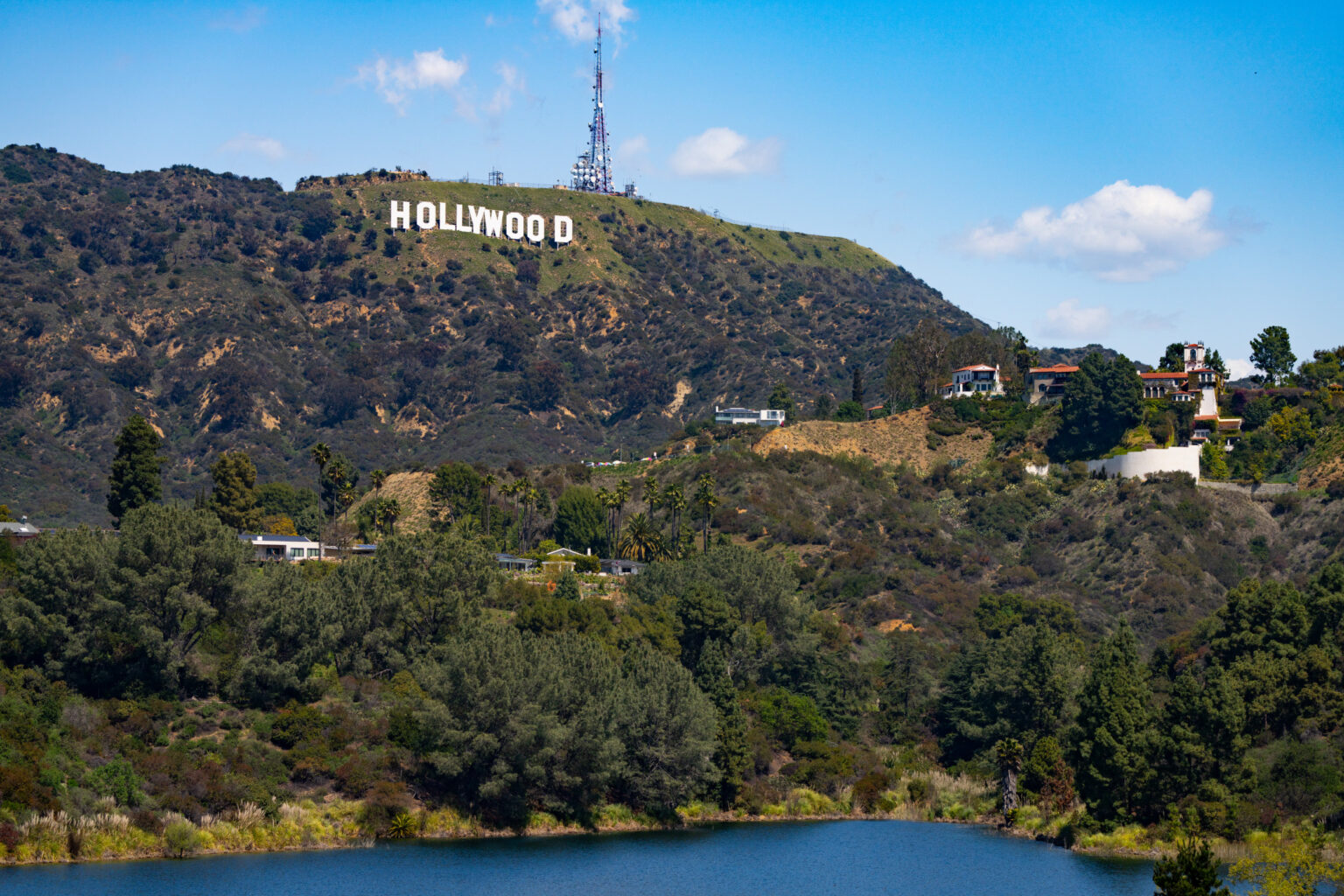President Donald Trump on Sunday wrote in a Truth Social post on Sunday about the state of Hollywood, saying that a 100 percent tariff on movies produced in foreign lands would be a great way to help the “dying” industry.
Newsweek reached out to the White House and California Governor Gavin Newsom by email on Sunday evening outside of normal hours for comment.
Why It Matters
The U.S. economy shrunk for the first time in three years after Trump announced a slate of reciprocal tariffs that caused the stock markets to plummet for a week and causing consumer confidence to crater before Trump announced a 90-day pause. Trump has rejected the idea that his tariffs caused the volatility and has said many countries came to him to make deals to avoid facing tariffs.
However, Trump maintained a roughly 145 percent tariff on all Chinese products, effectively creating a trade embargo with China, which has yet to take effect. Trump on Sunday maintained that once the tariff effect kicks in, it will boost domestic production and sales, while critics claim it will increase prices and deter spending.
What To Know
In his Truth Social post, Trump announced that he has ordered the Department of Commerce to institute a 100 percent tariff on all movies produced in foreign lands, without saying whether he means movies entirely produced overseas by a foreign studio, or movies produced by American studios in foreign lands.
“The Movie Industry in America is DYING a very fast death,” Trump wrote. “Other Countries are offering all sorts of incentives to draw our filmmakers and studios away from the United States.”
“Hollywood, and many other areas within the U.S.A., are being devastated. This is a concerted effort by other Nations and, therefore, a National Security threat. It is, in addition to everything else, messaging and propaganda!” he continued. “Therefore, I am authorizing the Department of Commerce, and the United States Trade Representative, to immediately begin the process of instituting a 100% Tariff on any and all Movies coming into our Country that are produced in Foreign Lands. WE WANT MOVIES MADE IN AMERICA, AGAIN!”
The cost of filming has become a hot topic of debate in Hollywood and associated media in recent months, starting with a surprising revelation that actor Rob Lowe’s gameshow The Floor is filmed in Ireland rather than on the Fox lot in California, which has 15 soundstages, production sites and various sets.
In the March 13 episode of his podcast, Literally! With Rob Lowe, the actor criticized California’s film industry incentives, saying, “It’s cheaper to bring a hundred American people to Ireland than to walk across the [studio] lot at Fox, past the soundstages, and do it there.”
When asked by former Parks and Recreation co-star Adam Scott whether their show would have filmed overseas if filmed today, Lowe said: “100 percent we would be. We’d be in Budapest.”
This is despite many states offering film production incentives, including tax credits and grants, to attract productions and boost local economies.
Besides California, states such as Georgia, Louisiana, New York, Illinois and Massachusetts offer strong incentives, and actor Matthew McConaughey has recently made a big push for Texas to increase its incentives.
Foreign films have also attracted greater attention in recent years thanks to South Korea’s Parasite winning the Academy Award for Best Picture in 2020. Controversial film Emilia Perez, which filmed in Paris, was the most-nominated film at the most recent Oscars.
All but three of the 10 Best Picture nominees, including winner Anora, filmed in the United States entirely, while The Substance, I’m Still Here, Dune: Part Two, Conclave, The Brutalist, and Wicked all filmed overseas. Wicked had originally planned to film in Atlanta, but changed course to the United Kingdom, while A Complete Unknown was planned to film partially in Canada but eventually shot entirely in the U.S.
As for the production companies for each film, that proves a tricky venture since films often have multiple production companies involved. A Complete Unknown had at least five different production companies that backed it.
What People Are Saying
Financial journalist and author James Surowiecki wrote on X, formerly Twitter, on Sunday: “There is no law that gives Trump the power to impose tariffs on movies made abroad. It’s not an economic emergency. It doesn’t constitute a plausible threat to national security. I have no idea if he’s really going to do this, but if he does, every studio should immediately sue.”
Veteran Democratic strategist David Axelrod wrote on X: “Raise your hand if placing tariffs on movies produced overseas at the top of YOUR to do list for this president? (Or reopening Alcatraz at 3X the cost of operating other prisons, another initiative he announced on social media today.)”
Update 5/4/25 at 9 p.m. ET: This article has been updated with additional information, context and comment.
Read the full article here

